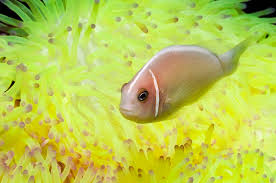Guizhou province, located in southwestern China, is one of the most underrated but rapidly emerging tea-producing regions in the country. With its high-altitude terrain, mild climate, and nutrient-rich soil, Guizhou has become a key location for growing premium tea varieties that are distinct in both flavor and quality. Unlike the more famous tea-producing regions such as Yunnan, Fujian, and Zhejiang, Guizhou’s tea remains relatively undiscovered, yet it holds a treasure trove of unique and traditional tea cultivars that set it apart.
This article explores the special tea varieties of Guizhou, their characteristics, cultivation methods, and what makes them unique compared to other regions.
1. The Ideal Conditions for Tea Growth in Guizhou
Before diving into the specific tea varieties, it’s important to understand why Guizhou produces such high-quality and unique teas.
1.1. High Altitude and Cool Climate
- Guizhou’s tea plantations are located at elevations between 800 and 1,500 meters (2,620–4,920 feet) above sea level.
- The cooler climate slows down the growth of tea leaves, allowing them to develop higher amino acid content, which contributes to the tea’s sweet and umami-rich taste.
- The morning mist and diffused sunlight prevent excessive bitterness, making Guizhou teas naturally smooth.
1.2. Pollution-Free Environment
- Unlike other regions, Guizhou’s remote location and low industrialization levels mean that its tea farms are less exposed to pollution.
- The local government enforces strict environmental regulations, ensuring organic and chemical-free tea production.
1.3. Rich Soil Composition
- Guizhou’s volcanic and limestone-based soils are mineral-rich, enhancing the complex flavors and health benefits of its teas.
- The slightly acidic soil (pH 4.5–6.0) is ideal for cultivating high-quality tea leaves.
2. Unique Tea Varieties of Guizhou
Guizhou is home to several special tea varieties, each with its own flavor profile, aroma, and health benefits. Below are some of the most famous and unique teas from the region.
2.1. Duyun Maojian (都匀毛尖) – The Green Tea Gem
Characteristics:
- Flavor: Fresh, slightly sweet, and umami-rich with a long-lasting aftertaste.
- Aroma: Floral and vegetal with hints of roasted chestnut.
- Appearance: Slender, needle-like leaves with fine white fuzz (“maojian” means “fur tip”).
Why It’s Special:
- One of China’s top ten famous teas.
- Grown at 1,000–1,300 meters in Duyun County, ensuring superior quality.
- Hand-picked before Qingming Festival (early spring) for the best flavor.
2.2. Guizhou Queshe (贵州雀舌) – “Sparrow’s Tongue” Tea
Characteristics:
- Flavor: Light and smooth, with a hint of nuttiness and floral undertones.
- Aroma: Sweet orchid-like fragrance.
- Appearance: Tiny, curved leaves resembling a sparrow’s tongue.
Why It’s Special:
- Only top bud leaves are harvested, making it a rare and delicate tea.
- High in antioxidants and L-theanine, known for its calming effects.
- Grown in Guiyang and Zunyi, where misty conditions enhance its sweetness.
2.3. Meitan Cuiya (湄潭翠芽) – “Emerald Bud” Tea
Characteristics:
- Flavor: Refreshing, slightly grassy with a hint of citrus.
- Aroma: Light floral fragrance with a subtle sweetness.
- Appearance: Bright green, tightly rolled leaves.
Why It’s Special:
- Recognized as a nationally protected tea variety in China.
- Rich in catechins, making it one of the healthiest green teas.
- Grown at 1,100 meters in Meitan County, known for its pure air and clean water sources.
2.4. Guiding Yunwu (贵定云雾) – “Misty Clouds” Tea
Characteristics:
- Flavor: Mild, smooth, and slightly sweet.
- Aroma: Delicate floral scent with a light earthy note.
- Appearance: Twisted, dark green leaves covered in fine white fuzz.
Why It’s Special:
- Grown in the high-altitude mountains of Guiding, where heavy mist enhances tea sweetness.
- High polyphenol content, providing strong antioxidant benefits.
- Traditionally hand-processed, preserving the tea’s natural flavors.
2.5. Guizhou Black Tea (贵州红茶)
Characteristics:
- Flavor: Malty, sweet, and smooth with hints of caramel and dried fruit.
- Aroma: Rich and deep, resembling dark chocolate.
- Appearance: Golden-tipped leaves with a dark reddish-brown hue.
Why It’s Special:
- One of China’s newer black tea varieties, gaining global recognition.
- Contains higher theaflavins, which contribute to its bold yet smooth taste.
- Grown in Tongren and Anshun, where warm days and cool nights enhance oxidation.
2.6. Zunyi White Tea (遵义白茶)
Characteristics:
- Flavor: Light, sweet, and floral with a lingering freshness.
- Aroma: Fragrant, with subtle peach and honey notes.
- Appearance: Silver-white leaves covered in downy fuzz.
Why It’s Special:
- One of the rarest white teas in China, cultivated in small batches.
- Naturally dried under the sun, preserving its delicate flavors.
- High in L-theanine, making it an excellent tea for relaxation.
3. How Guizhou Tea Stands Out from Other Regions
Guizhou’s tea differs from those of Fujian, Yunnan, and Zhejiang due to several factors:
- Higher Elevations: Slower growth leads to more flavorful and nutrient-dense tea leaves.
- Lower Pollution Levels: Produces some of the cleanest, pesticide-free teas in China.
- Unique Climate: Misty conditions naturally enhance sweetness and aroma.
- Rare and Exclusive Varieties: Many Guizhou teas are not widely available outside China.
4. Sustainable Tea Farming in Guizhou
To ensure long-term sustainability, Guizhou tea farmers implement:
- Organic cultivation with zero pesticide use.
- Eco-friendly irrigation to conserve water.
- Hand-picking methods, preserving traditional tea-processing techniques.
These efforts contribute to higher-quality teas with minimal environmental impact.
Conclusion
Guizhou’s diverse tea varieties, ideal growing conditions, and commitment to organic farming make it one of China’s most promising tea regions. From the famous Duyun Maojian to the rare Zunyi White Tea, Guizhou offers an exciting selection of high-quality teas that deserve more global recognition.
Whether you are a casual tea drinker or a dedicated tea connoisseur, Guizhou’s unique tea varieties provide a fresh and authentic experience, making them a valuable addition to China’s rich tea culture.











